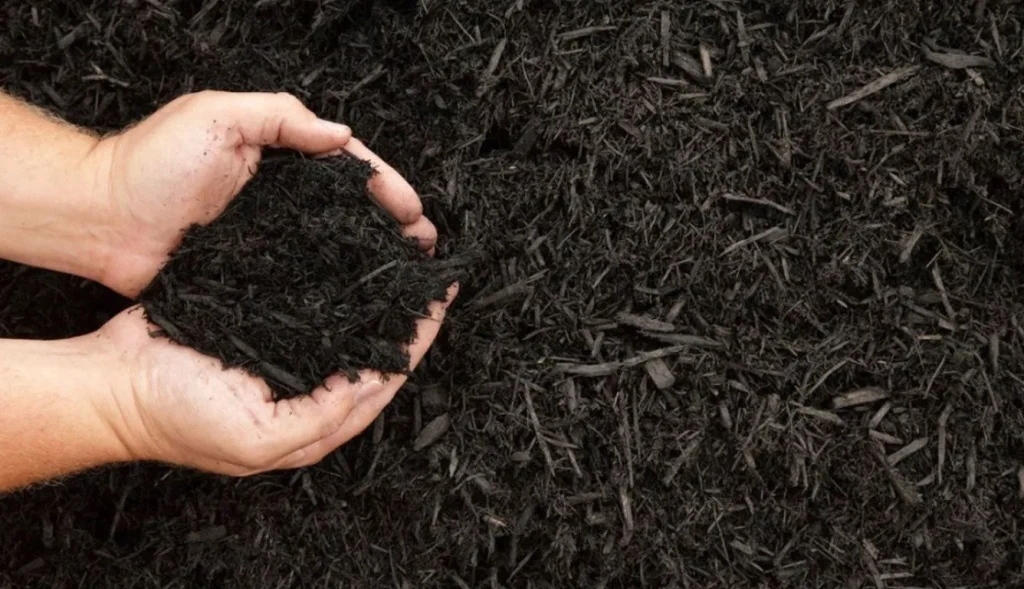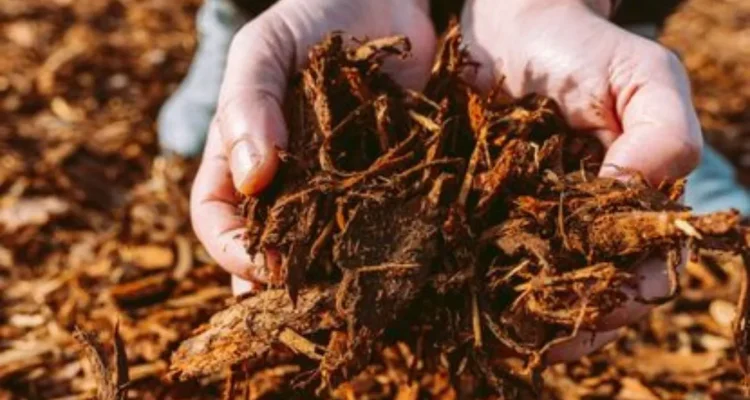Introduction
Mulch is a gardener’s best friend, offering a host of benefits from weed suppression to moisture retention. But what do you do when your mulch starts to look tired and worn out? It’s not just about aesthetics; dealing with old mulch properly is essential for maintaining a healthy garden. Let’s explore the various options you have for reusing, revitalizing, or disposing of old mulch.

What is Mulch?
Definition and Types of Mulch
Mulch is any material spread over the surface of the soil to enhance its condition. There are various types of mulch, including organic options like wood chips, bark, straw, and compost, as well as inorganic choices like plastic sheeting and gravel.
Benefits of Using Mulch
Mulch serves several purposes in the garden. It helps retain soil moisture, suppresses weeds, regulates soil temperature, and adds organic matter to the soil as it decomposes. It also enhances the visual appeal of your garden beds.
Signs Your Mulch Needs Replacing
Fading Color
One of the first signs that your mulch needs attention is a faded color. Fresh mulch has a vibrant hue, but over time, exposure to the elements can cause it to lose its luster.
Compacted and Matted Mulch
If your mulch has become compacted or matted, it can prevent water and nutrients from reaching the soil. This can lead to poor plant health.
Presence of Mold or Fungus
Mold or fungus growing on your mulch is a clear indication that it’s time for a change. These can be harmful to your plants and may indicate that the mulch is retaining too much moisture.
Environmental Considerations
Impact on Soil Health
Old mulch that’s left to decompose can either benefit or harm your soil, depending on its condition. Well-decomposed mulch adds valuable organic matter, but poorly decomposed mulch can harbor pests and diseases.
Decomposition Process
As mulch breaks down, it contributes to the soil’s organic content. However, if it decomposes too slowly or improperly, it can create an unfavorable environment for your plants.
Reusing Old Mulch
Composting Old Mulch
One of the best ways to deal with old mulch is to compost it. Composting breaks down the mulch into nutrient-rich compost that can be used to enrich your garden soil.
Mixing with New Mulch
You can extend the life of your mulch by mixing old mulch with new. This not only freshens up the appearance but also helps with the gradual decomposition of the old material.
Using as a Base Layer
Old mulch can serve as a base layer for new mulch. This can help retain moisture and improve the soil structure underneath.
Revitalizing Old Mulch
Fluffing and Aerating
Fluffing up your old mulch can improve its appearance and effectiveness. Use a rake or garden fork to loosen compacted mulch and aerate it.
Adding Fresh Material
Mixing in some fresh mulch with the old can rejuvenate its look and function. This is a quick and cost-effective way to refresh your garden beds.
Using Mulch Dyes
If your mulch has lost its color but is still in good condition, consider using mulch dyes. These are specially formulated to restore the color of your mulch.
Using Old Mulch in Landscaping
Pathways and Walkways
Old mulch can be repurposed to create pathways and walkways in your garden. It provides a soft, natural surface that is easy to walk on.
Erosion Control
Mulch is excellent for controlling erosion on slopes and embankments. Spread a thick layer of old mulch to help stabilize the soil and prevent erosion.
Mulching Around Trees and Shrubs
Old mulch can still be useful around trees and shrubs. Just make sure to keep it away from the trunk to avoid issues with rot and pests.
Alternative Uses for Old Mulch
Creating Garden Beds
Use old mulch to create new garden beds. It can serve as an excellent base layer, providing a good foundation for new soil and plants.
Animal Bedding
Old mulch can be used as bedding for animals like chickens and rabbits. It’s absorbent and provides a comfortable surface for them to rest on.
Weed Suppression
Even if it’s no longer aesthetically pleasing, old mulch can still suppress weeds. Use it in areas where appearance is less of a concern but weed control is needed.
Composting Old Mulch
Steps to Composting
To compost old mulch, start by creating a compost pile. Add a mix of green materials (like kitchen scraps) and brown materials (like leaves and mulch). Keep the pile moist and turn it regularly to aerate.
Benefits of Composting Mulch
Composting old mulch turns it into a nutrient-rich soil amendment. It’s a great way to recycle garden waste and improve your soil.
Troubleshooting Compost Issues
If your compost pile isn’t breaking down, it might be too dry or lack enough green material. Adjusting the moisture level and adding more nitrogen-rich materials can help.
Safety Considerations
Handling Moldy or Decomposed Mulch
When dealing with moldy or decomposed mulch, wear gloves and a mask to avoid exposure to mold spores. Dispose of any mulch that is heavily infested with mold.
Preventing Pest Infestations
Old mulch can attract pests like termites and rodents. Regularly turning and aerating your mulch can help prevent these issues.
Benefits of Reusing Mulch
Cost Savings
Reusing mulch can save you money by reducing the need to buy new mulch each season.
Environmental Impact
Recycling old mulch is environmentally friendly. It reduces waste and the need for production and transportation of new mulch.
Enhancing Soil Structure
As mulch decomposes, it adds organic matter to the soil, improving its structure and fertility.
When to Dispose of Old Mulch
Signs It’s Time to Dispose
If your mulch is completely broken down or infested with pests and disease, it’s time to dispose of it.
Proper Disposal Methods
Dispose of old mulch by composting it or taking it to a local green waste facility. Avoid sending it to the landfill if possible.
Tips for Maintaining Mulch
Regularly Turning Mulch
Turning your mulch regularly helps to aerate it and prevent compaction.
Keeping Mulch at the Right Depth
Maintain mulch at a depth of 2-4 inches to ensure it provides adequate coverage without smothering your plants.
Choosing the Right Type of Mulch
Different types of mulch work best for different purposes. Choose the right type of mulch for your specific needs.
FAQs
1. Can old mulch harm my plants?
Old mulch can sometimes harbor mold or pests, so it’s important to assess its condition before reuse. If it looks and smells healthy, it can be beneficial to your garden.
2. How long does it take for mulch to decompose?
Mulch decomposition varies depending on the type and conditions, but it typically takes several months to a year.
3. Can I use old mulch in vegetable gardens?
Yes, as long as the mulch is free from contaminants and pathogens, it can be safely used in vegetable gardens.
4. Is it necessary to replace mulch every year?
While not always necessary, replacing mulch annually can help maintain its benefits and keep your garden looking fresh.
5. What types of mulch should be avoided for reuse?
Avoid reusing mulch treated with chemicals, heavily decomposed mulch, or mulch contaminated with pests or diseases.
Conclusion
Dealing with old mulch doesn’t have to be a hassle. With a little effort, you can reuse, revitalize, or properly dispose of your mulch, keeping your garden healthy and beautiful. By considering these tips, you’ll not only save money but also contribute to a more sustainable gardening practice.


Congratulation!